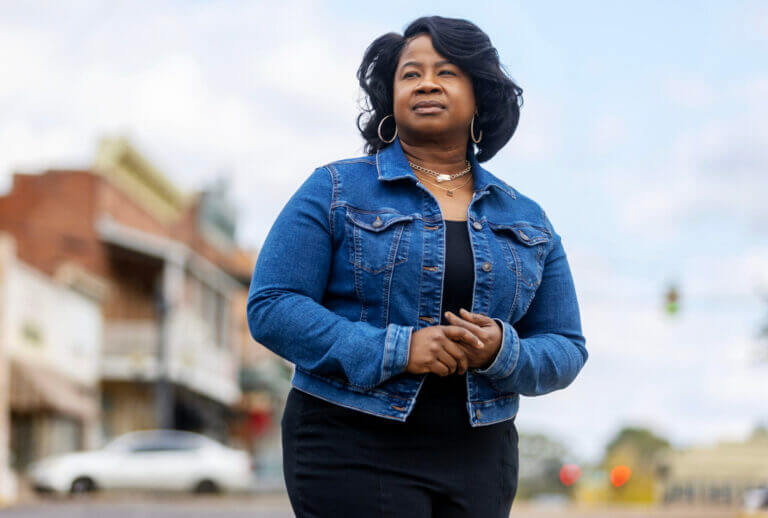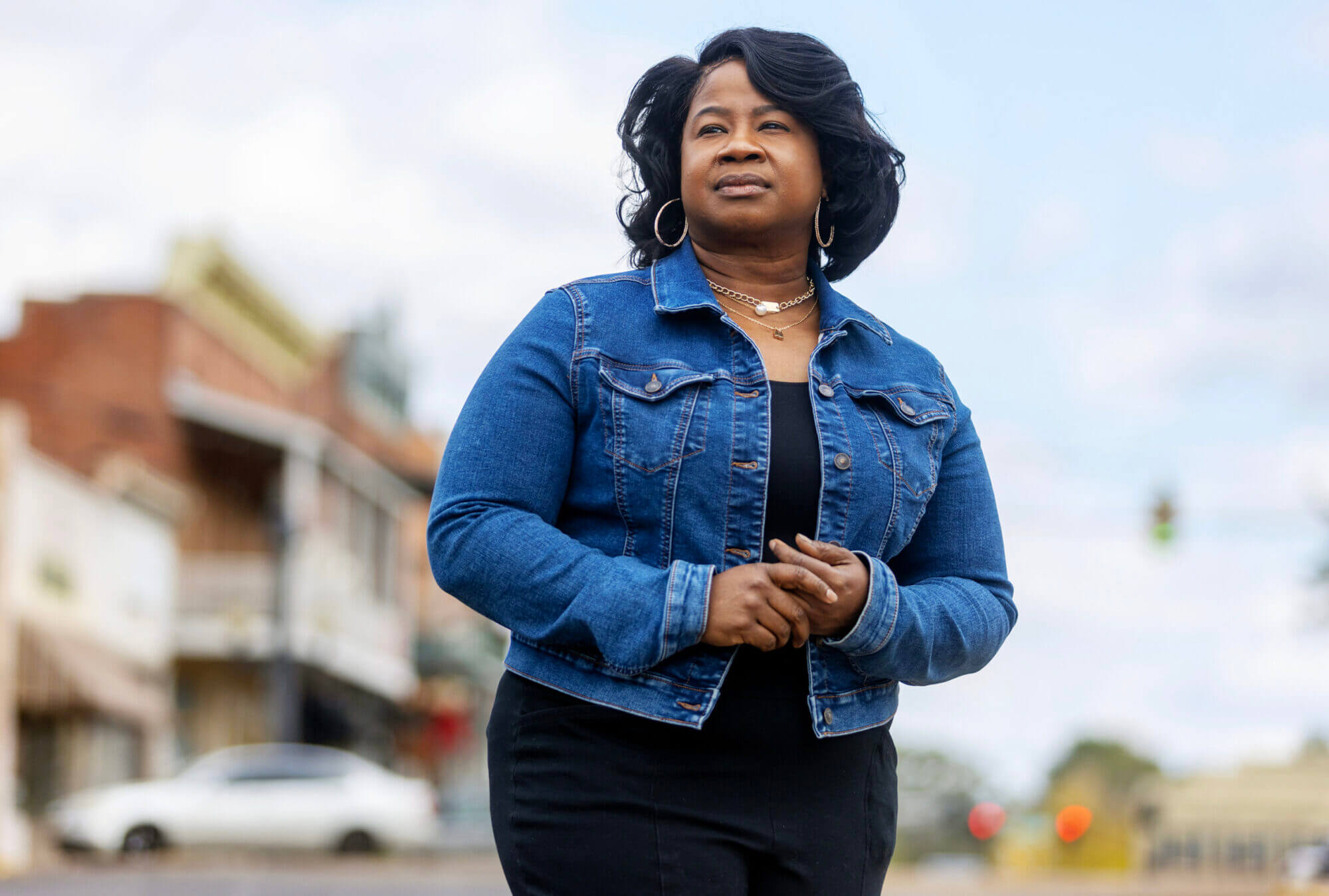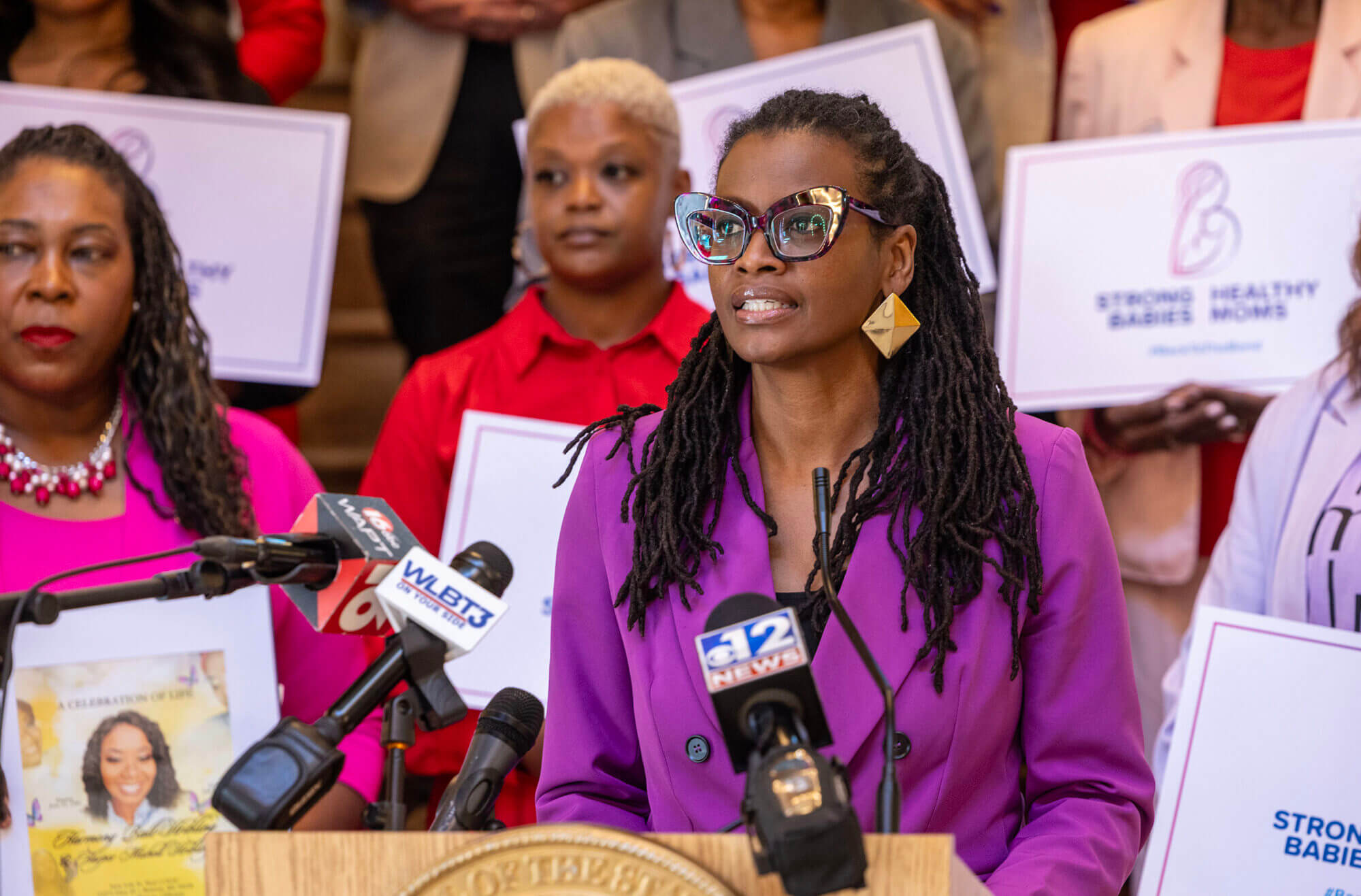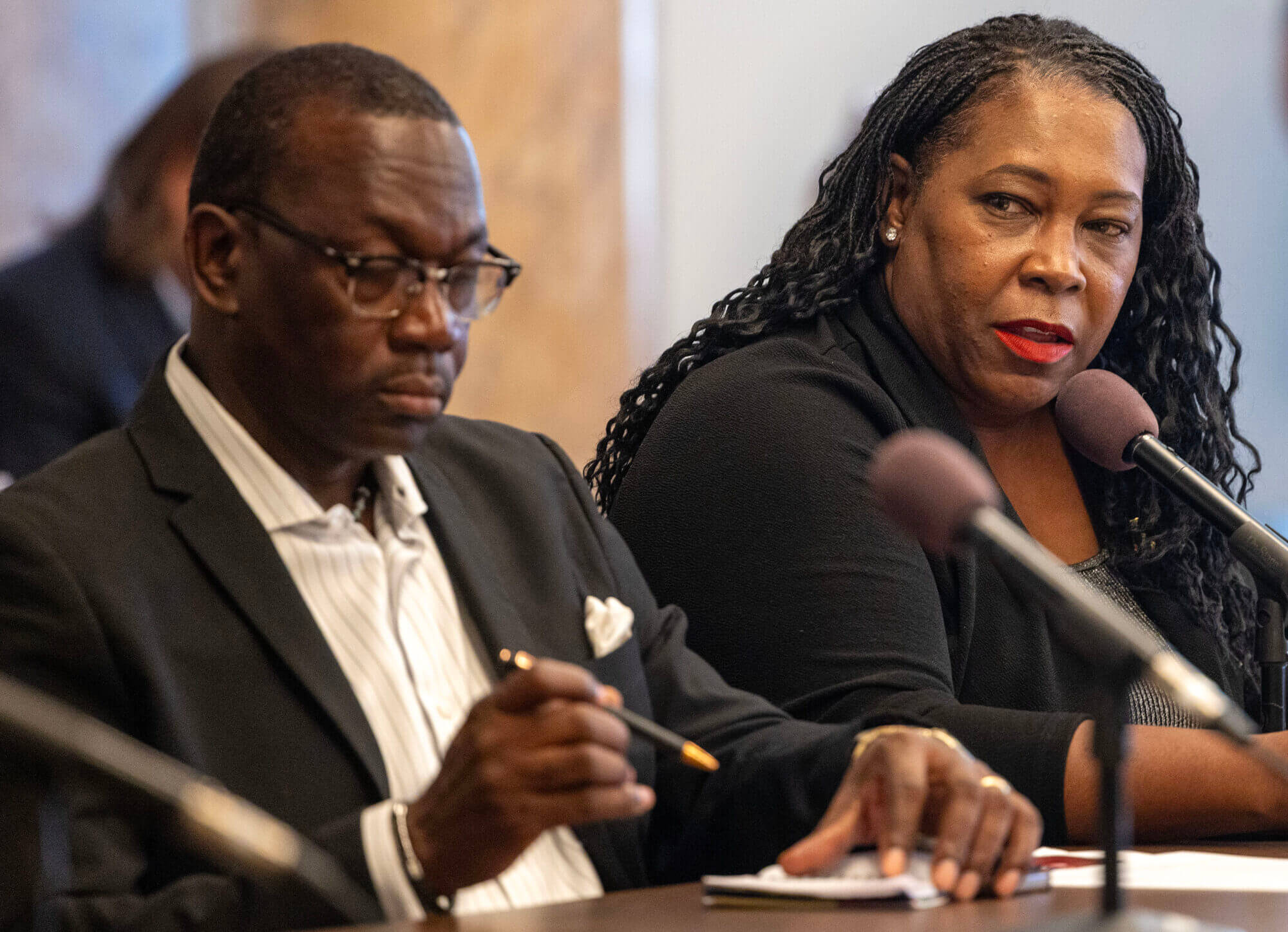

Moms face a public health crisis that’s putting Mississippi behind every other state, and it could get worse under federal changes, speakers said at a Legislative Black Caucus hearing.
Amid the cuts to Medicaid and food stamps, exacerbated by the ongoing shutdown, advocates called on the state to take action. They said lawmakers should expand Medicaid, protect food assistance programs, create standardized paid parental leave, support midwives and doulas and invest in child care and early childhood education.
Mississippi is one of the most dangerous places to give birth, especially for Black women, who are four times more likely than white women to die from pregnancy-related deaths, or deaths that occur during pregnancy or up to one year postpartum and are caused in part by the pregnancy. A combination of poverty, chronic diseases, provider shortages and policies that have shut out tens of thousands of Mississippians from health care contribute to bad outcomes for mothers and babies.
Now, cuts to Medicaid and food assistance programs threaten to walk back progress that has been made over the years, speakers said Thursday at the state Capitol.
In the past three years, the Mississippi Legislature passed laws to give women an additional 12 months of Medicaid coverage postpartum, timely prenatal care as they wait for their Medicaid applications to process and paid parental leave for state employees.
Democratic lawmakers and advocates in Mississippi had hoped to build on those policies by passing laws to guarantee all workers paid parental leave, and to expand Medicaid to cover those who currently fall in the coverage gap – making too much to qualify for the state’s strict Medicaid income threshold but too little to qualify for subsidies that make Affordable Care Act marketplace insurance more affordable.
Now, they worry that even keeping the current policies from shrinking might be an impossible feat.
“We are facing dramatic cuts to Medicaid through the Big Ugly Bill and Donald Trump and Congressional Republican members’ efforts to gut this lifesaving health care program that covers so many births in your state and across the country,” said U.S. Rep. Lauren Underwood of Illinois, one of the authors of “Momnibus” legislation aimed at addressing the Black maternal health crisis. Underwood attended the Mississippi event by video conference.
“To hear that you all are thinking about growing the workforce, investing in doulas, interested in taking a look at how to support community-based organizations and clinics across the state – these are the kinds of resources that our moms and our families need.”
Partisan disagreements over health care are at the center of the ongoing federal government shutdown. Democrats are fighting to renew Biden-era subsidies that are making health insurance more affordable for millions of Americans. If they are not renewed, premiums on ACA marketplace insurance plans will more than double next year, KFF estimates.
And it’s not just about having health insurance, Cassandra Welchlin of the Black Women’s Roundtable argued. Welchlin described a mother she knows who works at a diner making $10 an hour, has no paid leave and relies on others to transport her. She risked her job to attend prenatal visits and returned to work two weeks postpartum.
“If you aren’t Danielle, you know Danielle,” Welchlin said of the mother. “It’s not just about the health care coverage but a string of policies that we have to co-create together in order to make strong babies and healthy moms.”

The federal budget bill signed into law by President Donald Trump over the summer includes the largest cuts to Medicaid and SNAP in history. The cuts to Medicaid are expected to trigger the downsizing of many rural hospitals – and labor and delivery units are often the first to go when hospital budgets shrink.
Women in rural areas already have few options for giving birth. Half of Mississippi’s counties are maternity care deserts, and the state Health Department recently declared a public health emergency for the state’s infant mortality rate – the highest in the nation.
Nobody knows that more than Shenelle Ball-Burks, whose pregnant daughter and unborn grandchild died in 2021 on the side of the road as her husband was driving her 28 minutes from their home to the closest hospital.
“I come before you from Belzoni in Humphreys County, a place where our hearts are full but our health care is empty, a place where the difference between life and death can be measured not in miles but in minutes,” Ball-Burks said at the hearing. “I didn’t know what to say when I was asked to speak here today because how do you find words when your heart has been shattered? How do you strive after watching your child’s life fade because help was too far away?”
Ball-Burks said she worries for all the moms and babies who will continue to suffer as help becomes farther away through federal and state policy changes.
“I don’t want another mother to hold her child’s obituary instead of her hand,” Ball-Burks said. “I don’t want another husband to kneel beside a little girl crying for help that never comes. I don’t want another child to walk across a graduation stage in search of a face that isn’t there.”
Research shows that when eligibility for social safety net programs is made stricter, women tend to lose the most. That’s partly because women more often participate in the programs – due to the wage gap and life events such as childbirth – but also because they are more often caregivers to those who use the programs.
“This is not just a statistic, not just someone else’s problem,” said Rep. Timaka James-Jones, a Democrat from Belzoni and the sister-in-law of Ball-Burks. “It’s a sacred responsibility. Because when we save our mothers, we don’t just save one life. We save families. We save our children’s futures. We save the heartbeat of our communities.”

Rep. Timaka James-Jones asks questions during a hearing on how the federal budget bill impacts Mississippi families, Tuesday, Sept. 30, 2025, at the state Capitol in Jackson, Miss. Credit: Eric Shelton/Mississippi Today
Many of the legislators and health care providers who spoke about their experience living through or witnessing the statistics that put Mississippi at the bottom of nearly every list when it comes to the health of moms and babies.
“Mississippi remains one of the hardest places in America to be pregnant and give birth, especially if you’re Black,” said Rep. Zakiya Summers, a Democrat from Jackson. “I speak to you not only as a legislator but as a Black mother who has carried life while carrying fear. Our survival should not be revolutionary. It should be standard.”
Women in rural communities don’t just suffer from a dearth of hospitals or obstetricians. They suffer from a dearth of reliable and affordable support in all forms, said Dr. Michelle Owens, maternal fetal medicine specialist in Jackson and the chair of the Mississippi Maternal Mortality Review Committee.
“There is data to support that having a person at the bedside, consistently, improves pregnancy outcomes and decreases C-section rates,” Owens said. “So what does that mean? It suggests that what we do with our hearts can even be more powerful than what we can accomplish with our hands.”
- ‘It’s incredibly disappointing.’ Teacher pay raise bills die from politics in Legislature - March 3, 2026
- He was supposed to get married. But in a Mississippi ICE facility, he was told ‘no.’ - March 3, 2026
- Currie revives prison health care bills set to die in Senate, vows to continue fight - March 3, 2026